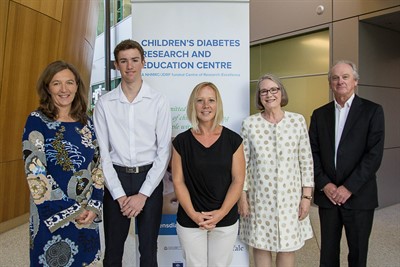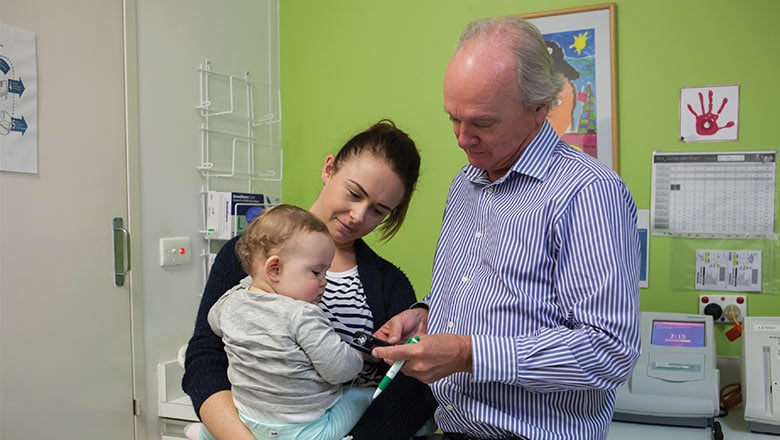Search

News & Events
Navigating the teenage years with type 1 diabetesThe teenage years can be a challenging time for families, a period made even more difficult if a child has type 1 diabetes.

News & Events
Smooth sailing for Drina thanks to burden-breaking technologyRecent diabetes technology is helping 12-year-old Drina keep on top of her condition and be independent, while significantly easing the disease burden on her family.

News & Events
New focus on type 2 diabetesResearchers at the Children’s Diabetes Centre at The Kids Research Institute Australia have begun researching type 2 diabetes to tackle the rising incidence of the disease among young people in Australia.

News & Events
Major focus for children’s diabetes research in WALaunch of the WA Children's Diabetes Research and Education Centre for Research Excellence (CRE) on the eve of World Diabetes Day.
News & Events
Environmental factors could trigger rise in type 1 diabetesNew research from Perth's Telethon Institute for Child Health Research has revealed an unexpected pattern in the rate and incidence of type 1 diabetes

News & Events
Improving the lives of kids with Type 1 DiabetesDiabetes research got a huge boost when the WA Children’s Diabetes Research and Education Centre for Research Excellence opened late last year.
Research
Type 1 DiabetesA lifelong auto-immune condition that can affect anyone, but is most commonly diagnosed in childhood.
Research
Wellbeing and Type 1 DiabetesA community-led, trauma-informed psychosocial intervention to improve health outcomes of children and young people with Type-1 diabetes.
Research
Variation in nutrition education practices in SWEET pediatric diabetes centers-an international comparisonNutrition education is central to pediatric type 1 diabetes management. Dietary management guidelines for type 1 diabetes are evidence based, but implementation may be challenging and inconsistent.
Research
DiabetesDiabetes is the name for a number of different metabolic disorders in which the body's healthy levels of blood sugar (glucose) can't be maintained.Diabetes can have a significant impact on quality of life should complications develop. Diabetes can affect the individual's entire body.
